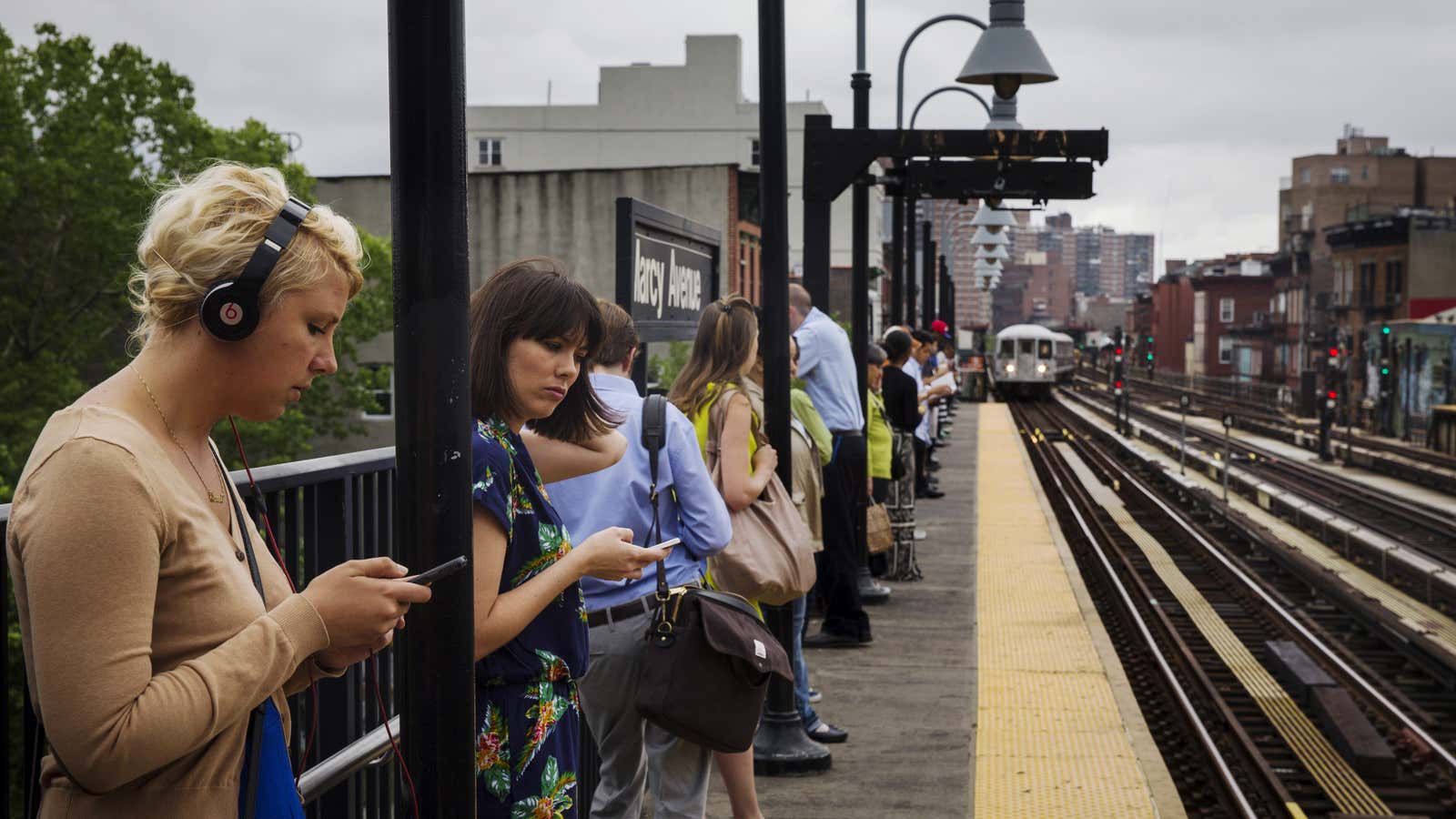Uber has a special deal for Manhattanites this summer: Unlimited UberPool rides during commuting hours, at rates cheaper than the New York City subway.
The company announced today that it’s offering an UberPool “commute card” to members of Gilt City, a flash sales site, for the months of July and August. The pass is good for rides on Pool, Uber’s pseudo-carpooling service, anywhere in Manhattan below 125th Street during weekday commuting hours (7-10am and 5-8pm, Monday through Friday). Uber is selling a two-week pass for $49, a four-week pass for $79, and an eight-week pass for $159. Joining Gilt City is free.
Translation: This is cheap. Really, absurdly cheap.
Comparatively, a seven-day unlimited pass for the New York City subway sells for $31. A 30-day card costs $116.50. (There is no two-week or two-month pass, but you can do the math.) Assuming you commute twice a day, five days a week, the cost per commuting-trip on a monthly subway pass works out to about $2.91. The cost per ride on Uber’s four-week equivalent is just $1.98.
Admittedly, New York’s unlimited passes are good for rides taken any time, any day, and throughout the five boroughs. They also cover the public bus system. Many people who buy unlimited subway cards probably use them for more than 40 rides a month, especially including weekends. Even so, if you live in Manhattan below 125th Street, and work in that region as well, Uber’s commute card is a really great deal.
Of course, the question is whether such a great bargain for Uber New York City riders will be as good of a deal for Uber itself. The company is looking at the unlimited passes as an extension of an existing promotion it was running in Manhattan below 125th Street, which priced UberPool rides during commuting hours at a flat $5. “We are hoping to make commuting in the hot summer just a little bit easier by expanding our $5 UberPool flat-rate option to include unlimited UberPool rides in Manhattan,” Josh Mohrer, Uber’s general manager for New York City, says in a statement.
Uber declined to comment on whether it expects to lose money on the latest promotion, but with rides as cheap as $1.98 apiece (or possibly even less), it’s hard to imagine they’ll be turning a profit.
The commuter card may also help Uber boost its ride volume during the slower summer months, and in an increasingly crowded market. While Uber dominates New York City’s ride-hailing scene, other competitors have been courting passengers aggressively.
Lyft, Uber’s chief rival in the US, has offered riders “exclusive” weekly deals for the last several months, often with discounts as high as 50%. Gett, a black car company that operates mainly in Israel, Russia, and the UK, has plastered the city’s subways with ads that attempt to mock Uber’s surge pricing. (Sample slogan: “My mama don’t like surge, and she likes everything.”) Meanwhile, Juno, the new “nice-guy” competitor to Uber, is luring drivers by only taking commissions of 10% (Uber’s take ranges from 20-28%), and riders with savings of up to 35%.
It’s too soon to say what effects Gett and Juno might be having, but data from the Taxi & Limousine Commission, New York City’s taxi regulator, indicates that Lyft’s promotions are working. From the last week in March to the last in April, the number of trips Lyft dispatched each week in New York City increased by 19%, to just over 200,000. Uber’s ride volume rose briefly in the middle of April, but ultimately stayed flat from the beginning to the end of the month.
